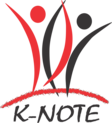As an expert in child protection and youth empowerment, and drawing from K-NOTE’s experience and strategic focus, the key interventions and support provided to the target populations can be elaborated under three main pillars: Child Protection, Youth Empowerment, and Health Information and Service Partnerships. These pillars are interlinked to create a holistic approach toward building resilient, healthy, and economically stable communities.
1. Child Protection
K-NOTE’s child protection work is rooted in safeguarding the rights and well-being of the most vulnerable children, particularly orphans and vulnerable children (OVCs). Key strategies include:
Case Management and Referral Services: Identifying at-risk children and linking them to appropriate services including legal aid, psychosocial support, shelter, and health services.
Community-Based Child Protection Structures: Strengthening child protection committees and training community members, caregivers, and volunteers to detect, prevent, and respond to abuse, neglect, and exploitation.
Capacity Building for Stakeholders: Training caregivers, teachers, and local leaders on child rights, safeguarding policies, and positive parenting.
Advocacy and Awareness: Conducting community dialogues, campaigns, and school-based programs to raise awareness on child protection issues such as gender-based violence (GBV), child labour, and early marriages.
2. Youth Empowerment
K-NOTE empowers youth by equipping them with practical skills and opportunities to enhance their socio-economic well-being. This includes:
Vocational and Technical Skills Training: Offering training in trades such as hairdressing, barbering, catering, tailoring, and electrical installation, among others, through partnerships with TVET institutions, Apprenticeships and Mentorships.
Business and Entrepreneurship Support: Providing start-up toolkits, mentoring, and financial literacy training to enable youth to start and grow small businesses.
Life Skills and Peer Education: Engaging youth in life skills sessions that build resilience, decision-making abilities, and confidence, often delivered through trained peer educators.
Job Readiness and Linkages: Supporting youth with CV writing, interview preparation, and connecting them with internship, apprenticeship, and employment opportunities.
3. Provision of Information and Partnerships for Health Services
K-NOTE integrates health information and access into all its programming, recognizing that healthy youth and children are more likely to thrive and succeed. Key activities include:
HIV Prevention and Support Services: Implementing peer-led HIV prevention education, condom distribution, and linkage to testing and treatment services in collaboration with health partners.
Sexual and Reproductive Health (SRH) Education: Providing age-appropriate SRH information to adolescents and youth to promote safe and informed choices.
Mental Health and Psychosocial Support (MHPSS): Offering counseling services and mental health awareness sessions to address trauma, anxiety, and depression among youth and children.
Health Partnerships: Working closely with government health facilities, NGOs, and community health workers to ensure seamless referrals and access to comprehensive health services.
Cross-Cutting Strategies
Community Engagement: Mobilizing and involving local leaders, parents, and gatekeepers in all program activities to ensure sustainability and community ownership.
Data and Evidence Use: Regular monitoring, evaluation, and learning (MEL) activities help track progress, inform decision-making, and improve service delivery.
Strategic Partnerships: Collaborating with government agencies, development partners, private sector players, and civil society to pool resources, expertise, and expand reach.
Through these integrated strategies, K-NOTE continues to build a society that is healthy, empowered, and resilient, especially for vulnerable children and youth.
